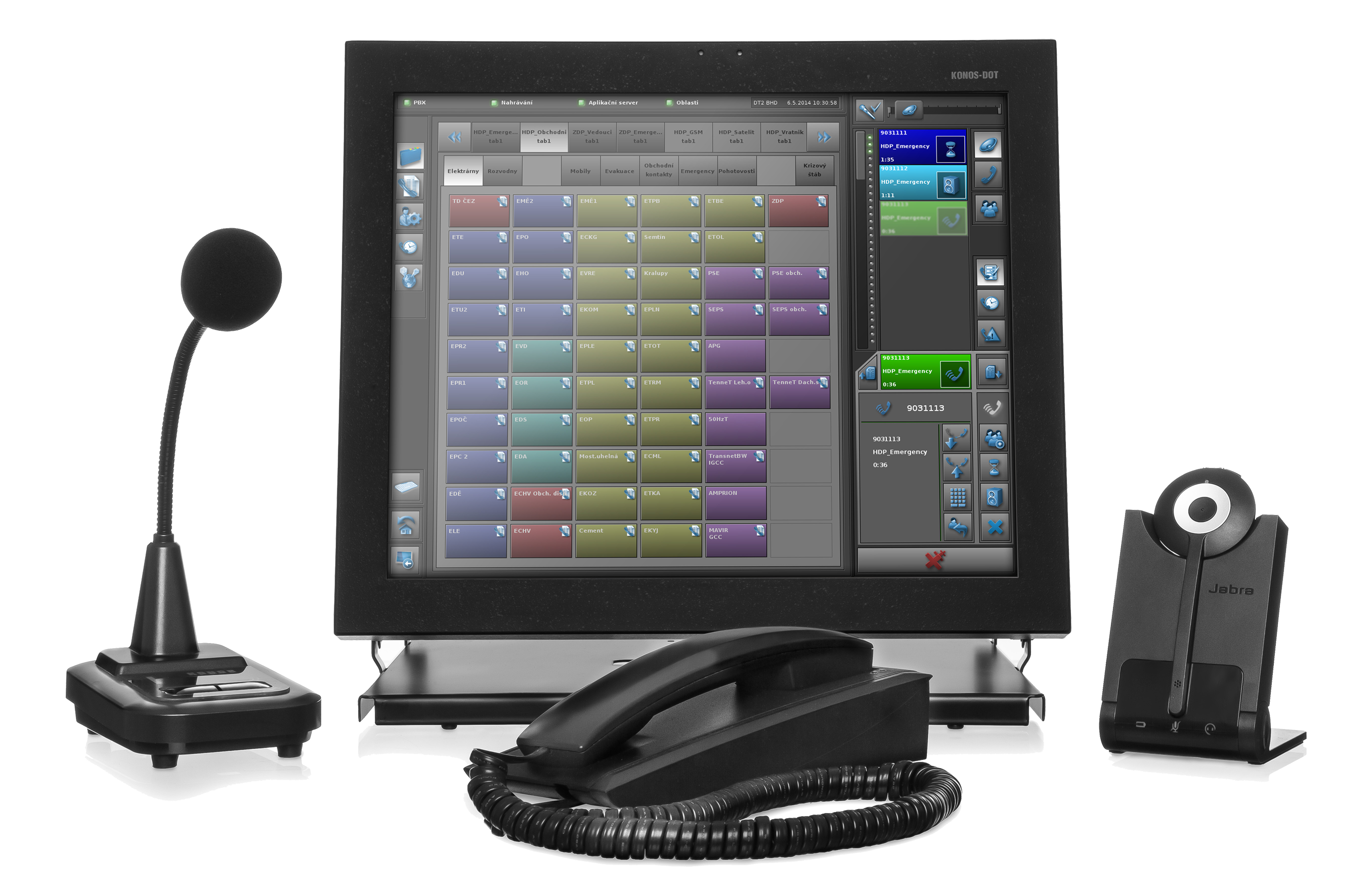 The DIPRA® Dispatcher Location serves as a means to manage a fleet of mobile users via a DIPRA® DMR Tier III Radio Network. It is connected to the DIPRA® Switch exploiting an IP interface and facilitates a simple and intuitive call set-up by means of a Graphical User Interface (GUI).
The DIPRA® Dispatcher Location serves as a means to manage a fleet of mobile users via a DIPRA® DMR Tier III Radio Network. It is connected to the DIPRA® Switch exploiting an IP interface and facilitates a simple and intuitive call set-up by means of a Graphical User Interface (GUI).
The following functions are part of the basic version of the DIPRA® Dispatcher Location utilizing a single screen:
- Set-up of individual calls, group calls and conference calls, acceptance of individual calls.
- Alternatively, calls may be sent to individuals or to mobile radios. As a prerequisite, users have to register with their user-ID.
- Calls may be put on hold, toggled between them, connected and monitored.
- Set-up and acceptance of emergency calls with optical and audio alerting. If necessary, existing calls are cleared down in favor of the emergency call.
- Identification of calling or called users, displayed by their calling numbers or by their names.
- Recording and playback of calls at the DIPRA® Dispatcher Location.
- Authentification of the dispatcher with name and password.
- Usage of multi-level user profiles with different access rights.
- Simple customization in terms of GUI, audio signals and audio level, etc.
- Multi-lingual support of the user interface.
- Encryption of digital signals between DIPRA® Dispatcher Location and DIPRA® Switch.
A variety of additional functions allow the precise adaptation of the DIPRA® Dispatcher Location to the requirements of a customer project:
- Pre-defined or free text messages may be submitted to individual users or groups.
- Text messages may be received, modified and redirected to others.
- Display of registered mobile terminals by automatic periodical test on their reachability.
- Graphical support for the set-up of dynamic group calls.
- Display of mobile user positions and routes on maps.
- A second screen may be installed to improve the overall view for the dispatcher.
- Automatic centering of the position of the mobile user on a map displayed on the screen in case of an emergency call .
- Multi-client capability for using the DIPRA® DMR Tier III Radio Network by several fleets.
- Support of security functions of mobile terminals, e.g. a man down feature.
- Locking and unlocking of a mobile terminal (e.g. after a terminal is lost).
Hardware Components
The DIPRA® Dispatcher Location consists of a modular system of components, thoroughly geared to each other, in order to facilitate an ergonomic and a fatigue-proof usage even over a longer period of time:
- 17“-touch screen with integrated industry PC.
- Integrated loudspeaker and interface for an external loudspeaker.
- Handset with tray.
- Goose-neck microphone with Push-to-Talk function (PTT). [Option]
- Headset, wireless [Option].
The European Telecommunications Standards Institute (ETSI) has set the basis for a world-wide accepted Professional Mobile Radio (PMR) technology with its DMR specifications TS 102 361 part 1 to part 4.
The specifications offer two levels of complexity - Tier II and Tier III - for operating mobile terminals with repeaters and for radio networks with a switchboard, respectively. Both tiers are exploiting licensed spectrum.
RADIODATA develops, manufactures and sells DMR Tier III Radio Networks under the brand name DIPRA®, comprising switches, basestations in standard or simulcast technology, mobile terminals, mobile data modems, dispatcher locations and custom-tailored applications. DIPRA® DMR Tier III Radio Systems allow to set up scalable and exclusively usable voice and data communication networks.
DIPRA® Radio Networks support the versatile facilities of data communication as laid down in the DMR specification.


